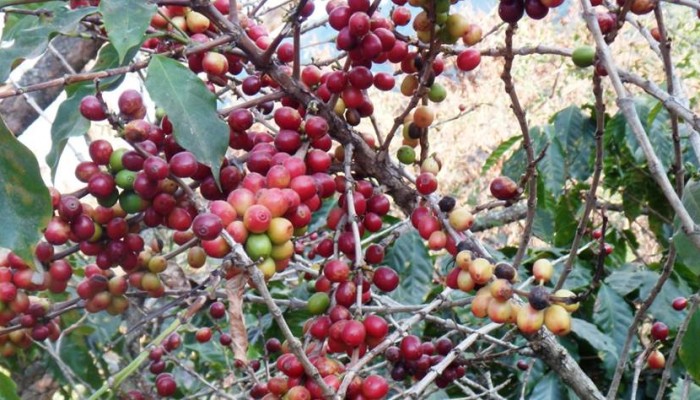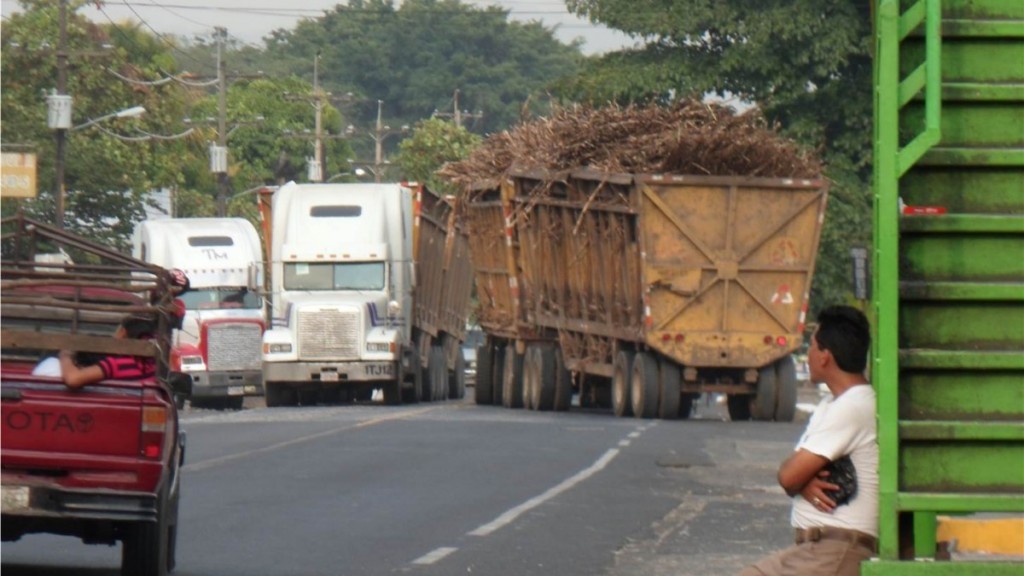
(Credit: Geology for Global Development, 2014)
This truck load of sugar cane was one of many observed on this stretch of road from Antigua leading to a volcanic observatory around the volcano Fuego. Agriculture – notably sugar and coffee – in Guatemala is highly significant in many respects, bringing benefits such as exports and jobs. There are however other more hidden impacts, relating to the overall hazardscape of the region, exposure and vulnerability.
Many of the large-scale sugar plantations are on the flat coastal plains, between the Central American volcanic chain and the Pacific Ocean. Also on this land are many of the water courses taking precipitation from the highlands to the Ocean, water courses that are subject to regular flooding for two reasons, (i) the addition of large amounts of sediment as lahars are mobilised and enter the rivers, and (ii) uncontrolled river engineering programmes by industry. The latter was repeatedly noted in interviews to be of concern when it comes to flooding events.
With exposure (being the number of ‘assets’ or people at risk), agriculture also is a contributing factor. The location of coffee plantations on the slopes of volcanoes results in many people living close-by and even more travelling to the area during the day to work. Informal interviews suggested at harvest times, adults will bring children to assist in the picking of coffee as they are paid by weight. The more people in the immediate vicinity of the volcano, the higher the exposure if an eruption, pyroclastic density current or lahar were to occur.
Finally, the agriculture sector can drive increases or reductions in vulnerability. It gives people an income, enabling them to acquire food, healthcare or shelter thus increasing their capacity to cope with extreme events. There is, also, a clear opportunity through small and large scale agriculture to invest in reducing community vulnerability – through improved preparedness, education, fair wages and good working conditions.
—-
Every Friday we are publishing an image from Guatemala to promote our ‘100 x 100’ fundraising campaign. We are working with students, recent graduates and others in the UK to raise money to support efforts to reduce the impact of volcanic hazards in Guatemala.
Find out more: www.gfgd.org/guatemala
Register your interest: Submit your information here

